I would like to thank James McGaha for capturing these images as well as Tim Hunter for his hard work in capturing, processing
and compiling these wonderful Messier Objects. More information about Tim Hunter
and James McGaha can be found at their website, the
Grasslands Observatory.
In 1758, a comet hunter and skilled observer by the name of Charles Messier
began to compile a list of nebulous looking objects. His chosen specialty was a
comet hunter, and the list was designed to serve as a guide to compare know objects
to potential comets.
When far from the Sun, comets can also look like fuzzy objects, but will move
slightly during the course of a few days. Messier's goal was not to study these
fuzzy objects on Messier's list, but Astronomers today still refer to the
Messier Objects as some of the more prominent deep space objects. There are 110
of these objects, and they have since been absorbed into a newer catalog -
called the New General Catalog
(or NGC), however observational purists still refer to the "M" in Messier when
viewing these objects through a telescope.
The Messier Object catalog is not specific to one type of object but has a
variety of galaxies, star clusters and nebulae. All of these objects are
viewable by either large binoculars or modest sized telescope (at least a 4 inch
- 10 cm telescope).
Because there are 110 of these objects, I have split them up into a few
pages. Please be patient while the images load...
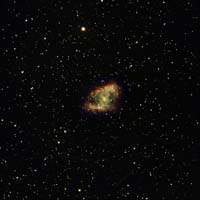 |
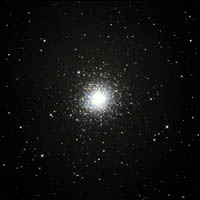 |
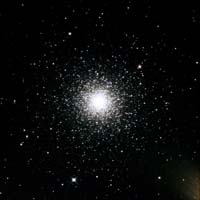 |
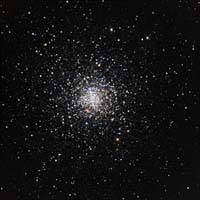 |
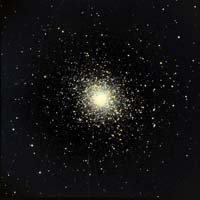 |
| M1 - "The Crab Nebula" a supernova remnant in the
constellation Taurus. |
M2 - A globular cluster in the constellation
Aquarius. |
M3 - A globular cluster in the constellation Canes
Venatici. |
M4 - "Cat's Eye" a globular cluster in the
constellation Scorpius. |
M5 - a globular cluster in the constellation Serpens. |
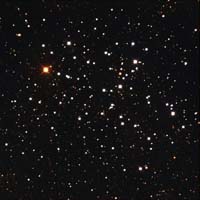 |
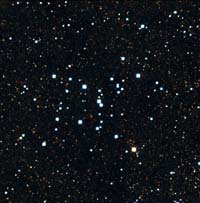 |
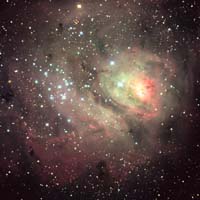 |
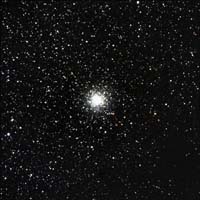 |
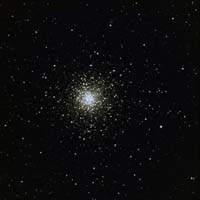 |
| M6 - "Butterfly Cluster" an open cluster in the
constellation Scorpius. |
M7 - an open cluster in the constellation Scorpius. |
M8 - "Lagoon Nebula" a diffuse nebula and open
cluster in the constellation Sagittarius. |
M9 - a globular cluster in the constellation
Ophiuchus. |
M10 - a globular cluster in the constellation
Ophiuchus. |
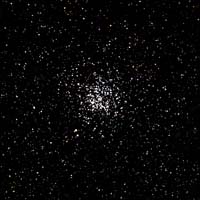 |
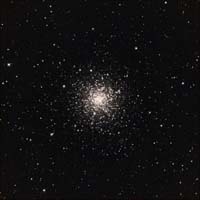 |
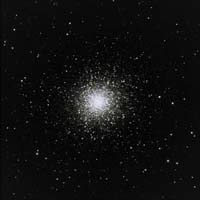 |
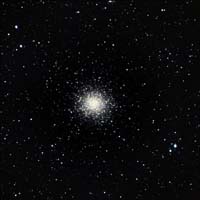 |
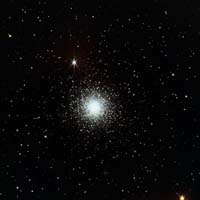 |
| M11 - "Wild Duck Cluster" an open cluster in the
constellation Scutum. |
M12 - "Gumball Cluster" a globular cluster in the
constellation Ophiuchus. |
M13 - "Great Hercules Cluster" a globular cluster in
the constellation Hercules. |
M14 - a globular cluster in the constellation
Ophiuchus. |
M15 - "Great Pegasus Cluster" a globular cluster in
the constellation Pegasus. |
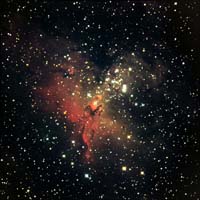 |
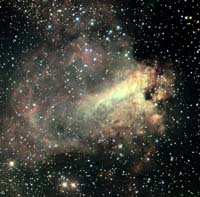 |
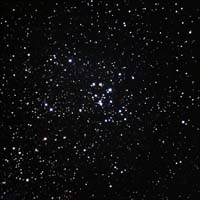 |
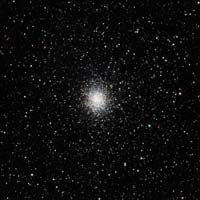 |
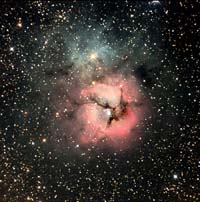 |
| M16 - "Eagle Nebula" an open cluster and emission
nebula in the constellation Serpens. |
M17 - "Swan Nebula" or "Omega Nebula" an open cluster
and emission nebula in the constellation Sagittarius. |
M18 - "Black Swan" an open cluster in the
constellation Sagittarius. |
M19 - a globular cluster in the constellation
Ophiuchus. |
M20 - "Trifid Nebula" a nebula and open cluster in
the constellation Sagittarius. |
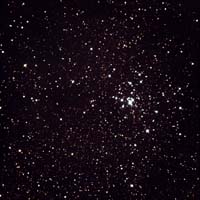 |
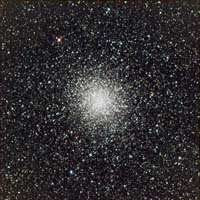 |
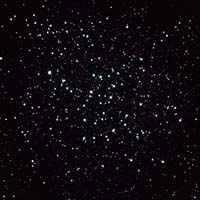 |
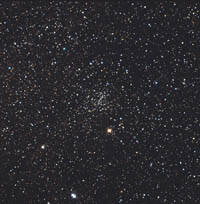 |
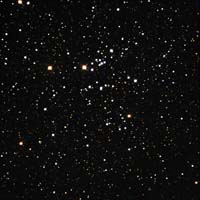 |
| M21 - an open cluster in the constellation
Sagittarius. |
M22 - "Great Sagittarius Cluster" a globular cluster
in the constellation Sagittarius. |
M23 - an open cluster in the constellation
Sagittarius. |
M24 - "Small Sagittarius Star Cloud" a star cloud and
open cluster in the constellation Sagittarius. |
M25 - an open cluster in the constellation
Sagittarius. |
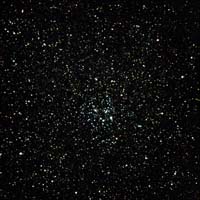 |
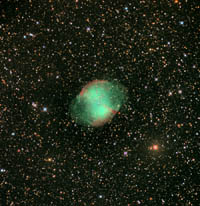 |
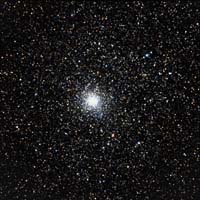 |
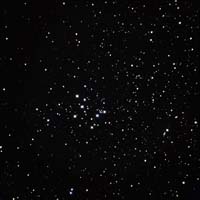 |
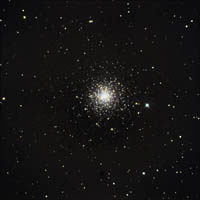 |
| M26 - an open cluster in the constellation Scutum. |
M27 - "Dumbbell Nebula" a planetary nebula in the
constellation Vulpecula. |
M28 - a globular cluster in the constellation
Sagittarius. |
M29 - an open cluster in the constellation Cygnus. |
M30 - a globular cluster in the constellation
Sagittarius. |
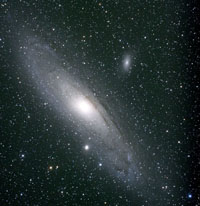 |
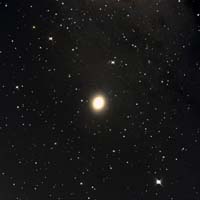 |
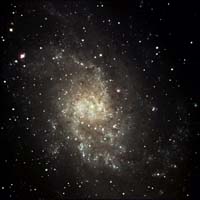 |
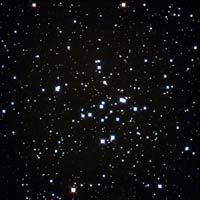 |
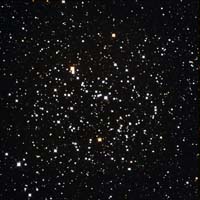 |
| M31 - "Andromeda Galaxy" a spiral galaxy in the
constellation Andromeda. |
M32 - a dwarf elliptical galaxy in the constellation
Andromeda (a companion to M31). |
M33 - "Triangulum Galaxy" or "Pinwheel Galaxy" a
spiral galaxy in the constellation Triangulum. |
M34 - an open cluster in the constellation Perseus. |
M35 - an open cluster in the constellation Gemini. |
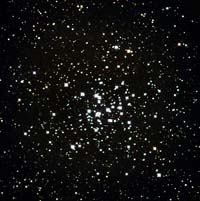 |
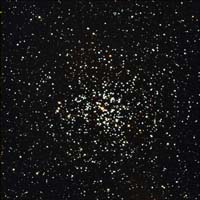 |
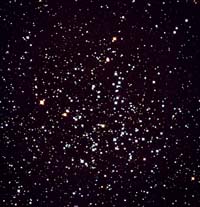 |
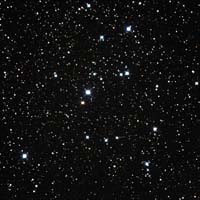 |
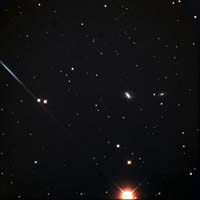 |
| M36 - an open cluster in the constellation Auriga. |
M37 - an open cluster in the constellation Auriga. |
M38 - an open cluster in the constellation Auriga. |
M39 - an open cluster in the constellation Cygnus. |
M40 - "Winnecke 4" a double-star (left of center) in
the constellation Ursa Major. |
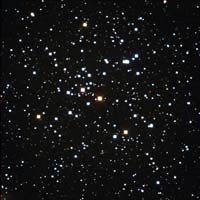 |
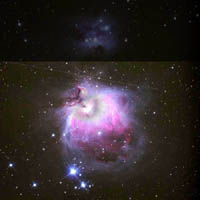 |
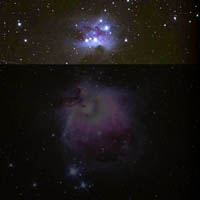 |
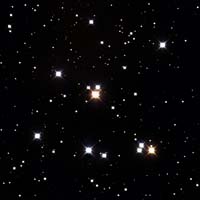 |
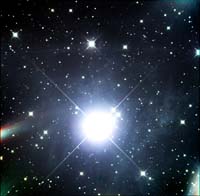 |
| M41 - "Little Beehive" an open cluster in the
constellation Canis Major. |
M42 - "The Great Orion Nebula" an emission nebula and
open cluster in the constellation Orion. |
M43 - an emission nebula in the constellation Orion
(Top). |
M44 - "Praesepe" or "Beehive Cluster" an open cluster
in the constellation Cancer. |
M45 - The star Alcyone, member of the Pleiades
Cluster ("Seven Sisters") in the constellation Taurus. |
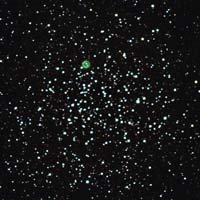 |
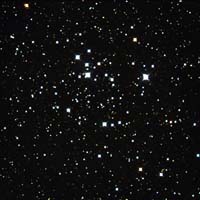 |
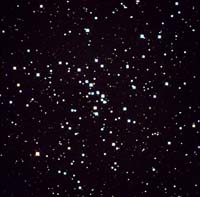 |
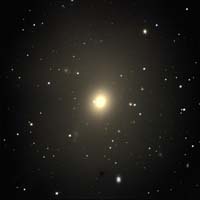 |
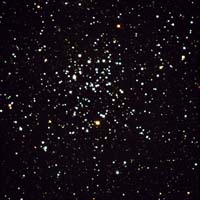 |
| M46 - an open cluster in the constellation Puppis.
The planetary nebula is NGC 2438. |
M47 - an open cluster in the constellation Puppis. |
M48 - an open cluster in the constellation Hydra. |
M49 - an elliptical galaxy in the constellation
Virgo. |
M50 - an open cluster in the constellation Monoceros. |
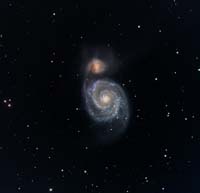 |
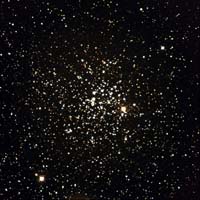 |
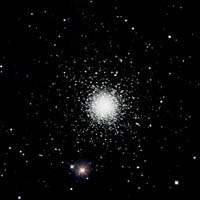 |
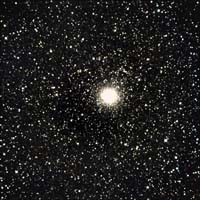 |
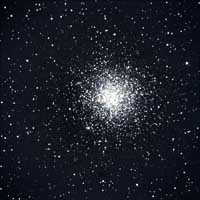 |
| M51 - "Whirlpool Galaxy" a spiral galaxy in the
constellation Canes Venatici. |
M52 - "The Scorpion" an open cluster in the
constellation Cassiopeia. |
M53 - a globular cluster in the constellation Coma
Berenices. |
M54 - a globular cluster in the constellation
Sagittarius. |
M55 - a globular cluster in the constellation
Sagittarius. |
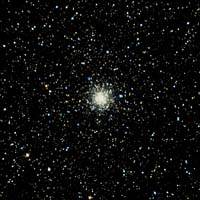 |
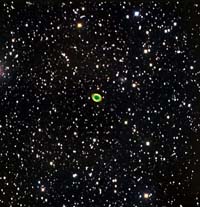 |
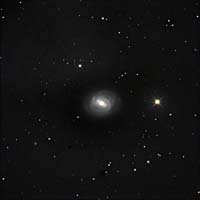 |
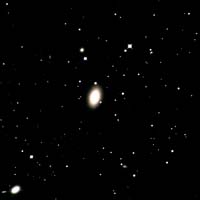 |
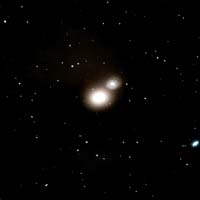 |
| M56 - a globular cluster in the constellation Lyra. |
M57 - "Ring Nebula" a planetary nebula in the
constellation Lyra. |
M58 - a barred spiral galaxy in the constellation
Virgo. |
M59 - an elliptical galaxy in the constellation
Virgo. |
M60 - an elliptical galaxy in the constellation
Virgo. |
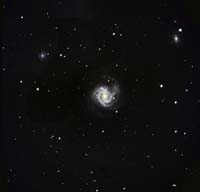 |
 |
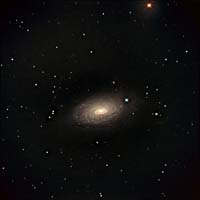 |
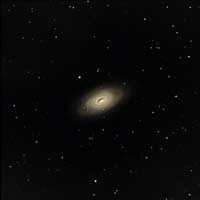 |
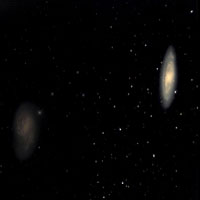 |
| M61 - "Swelling Spiral" a spiral galaxy in the
constellation Virgo. |
M62 - "Flickering Globular" a globular cluster in the
constellation Ophiuchus. |
M63 - "Sunflower Galaxy a spiral galaxy in the
constellation Canes Venatici. |
M64 - "Black Eye Galaxy" a spiral galaxy in the
constellation Coma Berenices. |
M65 (on the right) - a spiral galaxy in the
constellation Leo. |
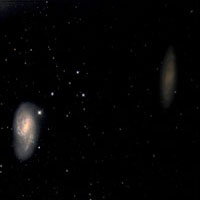 |
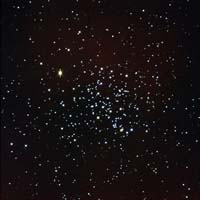 |
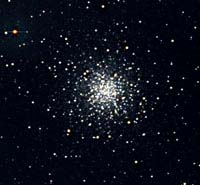 |
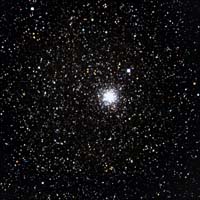 |
 |
| M66 (on the left) - a spiral galaxy in the
constellation Leo. |
M67 - "King Cobra" an open cluster in the
constellation Cancer. |
M68 - a globular cluster in the constellation Hydra. |
M69 - a globular cluster in the constellation
Sagittarius. |
M70 - a globular cluster in the constellation
Sagittarius. |
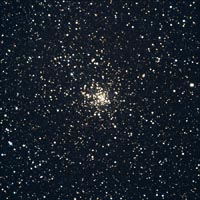 |
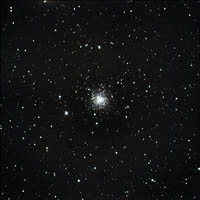 |
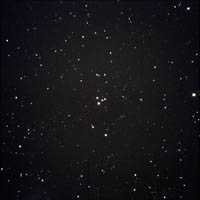 |
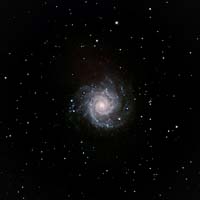 |
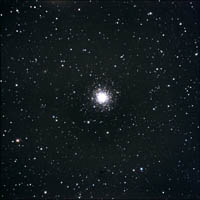 |
| M71 - a globular cluster in the constellation Sagitta. |
M72 - a globular cluster in the constellation
Aquarius. |
M73 - an asterism in the constellation Aquarius. |
M74 - "The Phantom" in the constellation Pisces. |
M75 - a globular cluster in the constellation
Sagittarius. |
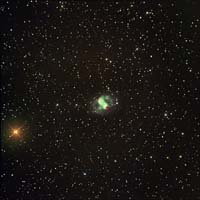 |
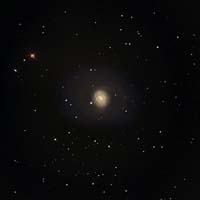 |
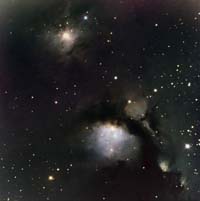 |
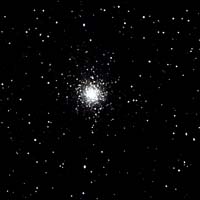 |
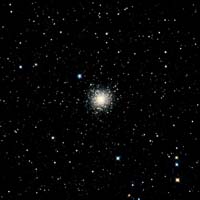 |
| M76 - "Little Dumbbell Nebula" a planetary nebula in
the constellation Perseus. |
M77 - a spiral galaxy in the constellation Cetus. |
M78 - a diffuse nebula in the constellation Orion. |
M79 - a globular cluster in the constellation Lepus. |
M80 - a globular cluster in the constellation
Scorpius. |
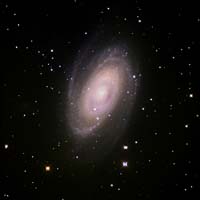 |
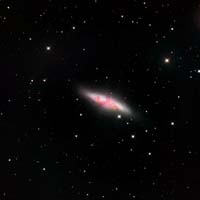 |
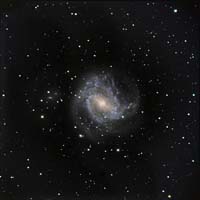 |
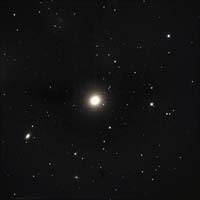 |
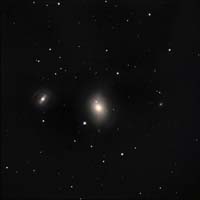 |
| M81 -a spiral galaxy in the constellation Ursa Major. |
M82 - an irregular galaxy in the constellation Ursa
Major. |
M83 - a spiral galaxy in the constellation Hydra. |
M84 - an elliptical galaxy in the constellation
Virgo. |
M85 - a lenticular galaxy in the constellation Coma
Berenices. |
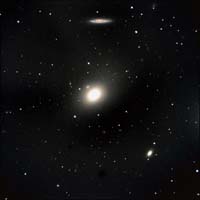 |
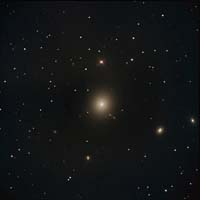 |
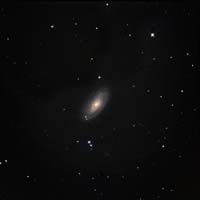 |
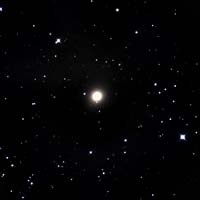 |
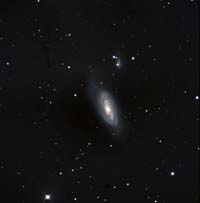 |
| M86 - an elliptical/spiral galaxy in the
constellation Virgo. |
M87 - and elliptical galaxy in the constellation
Virgo. |
M88 - a spiral galaxy in the constellation Coma
Berenices. |
M89 - an elliptical galaxy in the constellation
Virgo. |
M90 - a spiral galaxy in the constellation Virgo. |
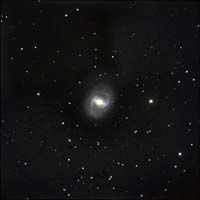 |
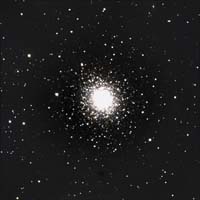 |
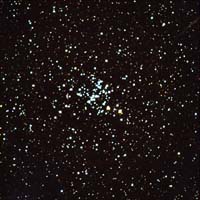 |
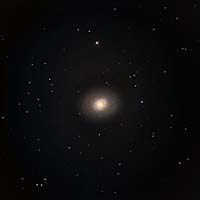 |
 |
| M91 - "Missing Messier Object" a spiral galaxy in the
constellation Coma Berenices. |
M92 - a globular cluster in the constellation
Hercules. |
M93 - an open cluster in the constellation Puppis. |
M94 - "Croc's Eye Galaxy" a spiral galaxy in the
constellation Canes Venatici. |
M95 - a barred spiral galaxy in the constellation
Leo. |
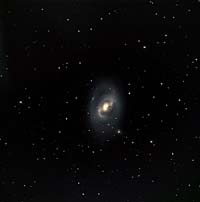 |
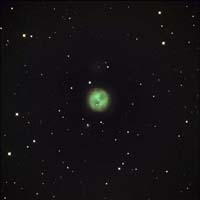 |
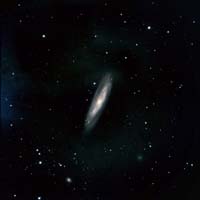 |
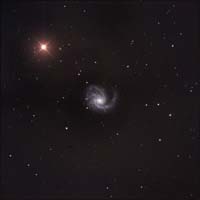 |
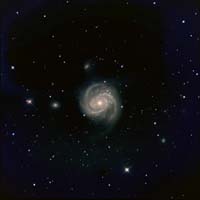 |
| M96 - a spiral galaxy in the constellation Leo. |
M97 - "Owl Nebula" a planetary nebula in the
constellation Ursa Major. |
M98 - a spiral galaxy in the constellation Coma
Berenices. |
M99 - a spiral galaxy in the constellation Coma
Berenices. |
M100 - "The Mirror of M99" a spiral galaxy in the
constellation Coma Berenices. |
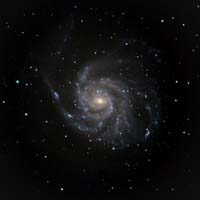 |
 |
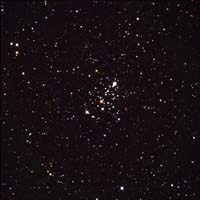 |
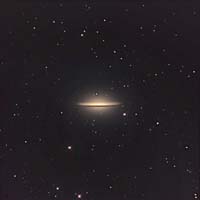 |
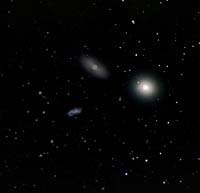 |
| M101 - a spiral galaxy in the constellation Ursa
Major. |
M102 - the missing M object? A lenticular galaxy in
the constellation Draco, some still believe it is also M101 (a duplicate
entry). |
M103 - an open cluster in the constellation
Cassiopeia. |
M104 - "Sombrero Galaxy" a spiral galaxy in the
constellation Virgo. |
M105 - an elliptical galaxy (right of center) in the
constellation Leo. |
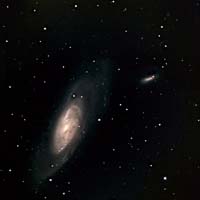 |
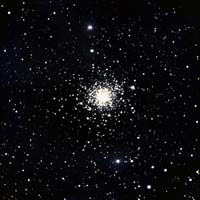 |
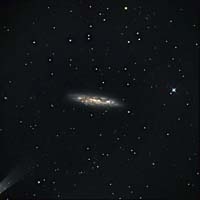 |
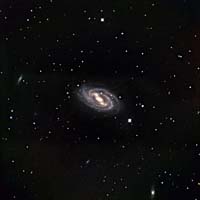 |
 |
| M106 - a spiral galaxy in the constellation Canes
Venatici. |
M107 - a globular cluster in the constellation
Ophiuchus. |
M108 - a spiral galaxy in the constellation Ursa
Major. |
M109 - a barred spiral galaxy in the constellation
Ursa Major. |
M110 - an elliptical galaxy in the constellation
Andromeda (a companion to M31). |
 |
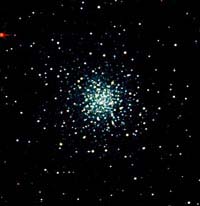 |
|
|
|
| M68 Revisited - a globular cluster in the
constellation Hydra. Image is in standard color. |
M68 Revisited - a globular cluster in the
constellation Hydra. Image is in Infrared. |
|
|
|

